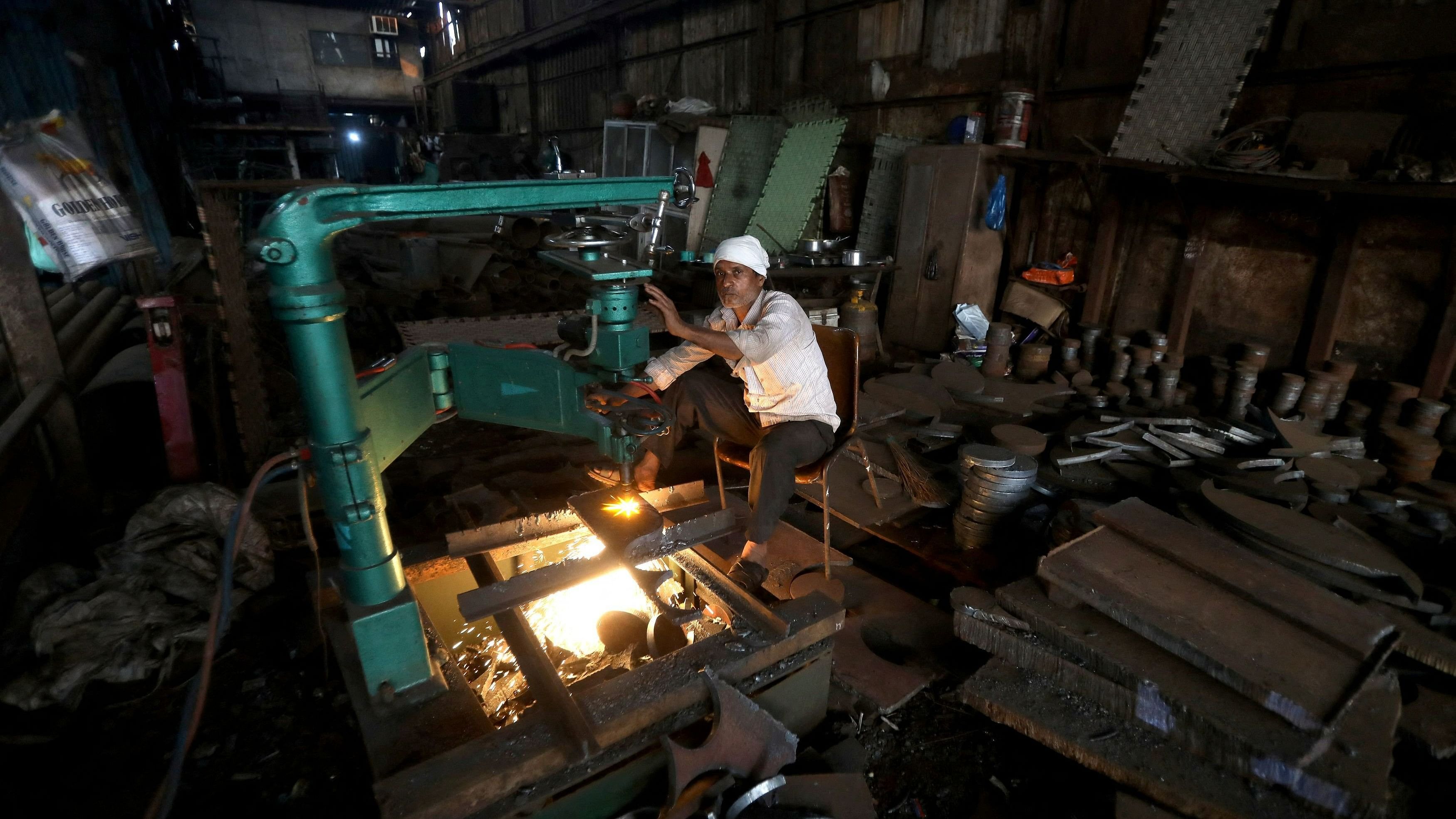
A worker operates a machine inside a small scale manufacturing unit in Mumbai, India, February 1, 2023.
Credit: Reuters Photo
New Delhi: India’s industrial output growth slipped to 3.8 per cent in January from 4.2 per cent recorded in the previous month dragged by deceleration in manufacturing production growth, while inflation remained relatively flat with mildest of change at 5.09 per cent in February, as per the government data released on Tuesday.
The Index of Industrial Production (IIP) softened in January despite acceleration in electricity and mining production.
Eight of the 23 sub-sectors in manufacturing posted negative growth in January on a year-on-year basis. Food, garments, paper, coke, chemicals and electronics were the major drag.
“The disappointment is electronics which is also covered under PLI (production linked incentive). Clearly it has not yet provided momentum to production so far,” said Madan Sabnavis, chief economist at Bank of Baroda.
“IIP growth slowed in January, dragged down by loss in momentum in the manufacturing sector,” said Rahul Bajoria, MD & head of emerging markets Asia (ex-China) Economics, Barclays.
Slower public capex growth also pulled down ‘infrastructure and construction’ goods growth. “Capital goods growth accelerated, and we note a gradual improvement in output of labour-intensive sectors,” Bajoria added.
The silver lining to the January 2024 IIP data though is that the output level of all use-based segments are above the pre-Covid level (February 2020) after a gap of 33 months, said Paras Jasrai, senior analyst at India Ratings and Research.
Meanwhile, Consumer Price Index-based inflation (CPI) in February mildly eased from 5.1per cent in January. Barring food and beverages, the retail inflation across all other sub-groups eased when compared with the previous month.
The food and beverages inflation printed above the 7 per cent-mark for the fourth month in a row. Food inflation soared from 8.3 per cent in January to 8.66 per cent in February. Price of vegetables surged by 30.25 per cent year-on-year during the month, pulses became costlier by 18.9 per cent, spices by 13.51per cent and cereals by 7.6 per cent.
In an encouraging trend, the core-CPI (CPI excluding food and beverages, fuel and light and petrol and diesel for vehicles) eased to 3.5 per cent in February from 3.7 per cent in the previous month, which is the lowest reading for this metric based on the available data since January 2015, said Aditi Nayar, chief economist at ICRA.
Inflation in the miscellaneous group cooled off to a 51-month low of 3.6 per centin February, amid a broad-based dip across all the six sub-categories, while that for housing and clothing and footwear also eased to multi-month lows in that month, helping to moderate the core-CPI inflation.